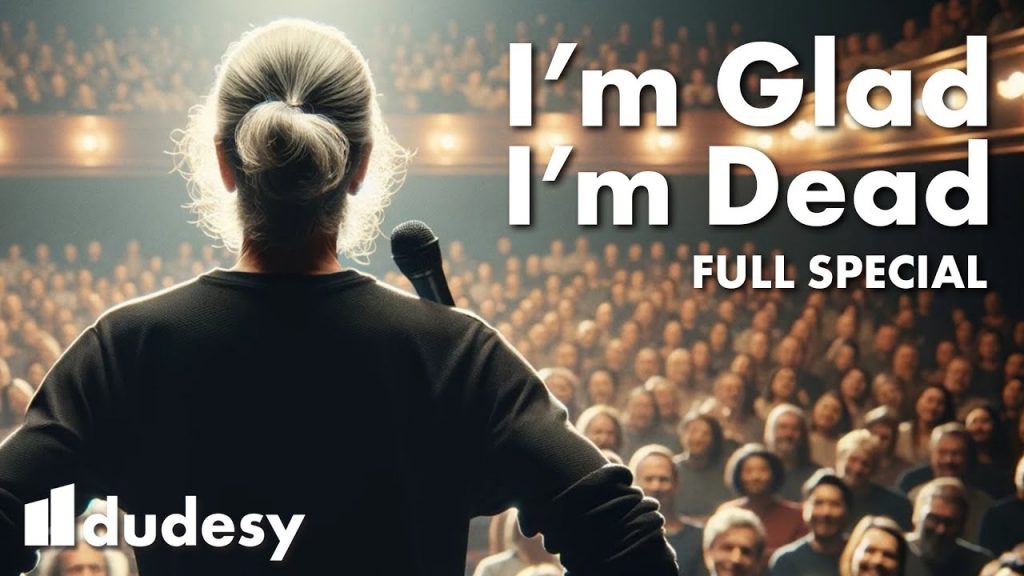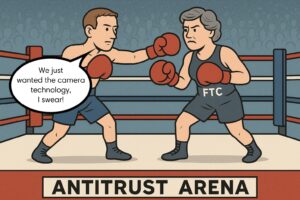George Carlin is widely regarded as one of the best and most influential stand-up comedians of all time. Unfortunately, I never got the chance to see him perform live before he passed away in 2008, but luckily for me and stand-up comedy fans, a lot of his work remains available on YouTube. My favourite joke of his that always gets me when I need a good laugh is “think of how dumb the average person is, and realize half of them are dumber than that”. Speaking of people who may not be particularly bright, two podcasters (the “Hosts”) released an AI-generated Carlin comedy special (the “AI Routine”) without the permission of Carlin’s estate (the “Plaintiffs”), and now an action has been brought against the Hosts for infringing Carlin’s copyright and right of publicity (the “Carlin Suit”).1 This blog will examine the Carlin Suit, the laws pertaining to publicity rights in the US and Canada, and implications for brands who may decide to use generative AI in their work in the future.
The Carlin Case
In March 2022, Will Sasso (best known as Mover #1 in Happy Gilmore) and Chad Kultgen (best known for this lawsuit) hosted the first episode of Dudesy, a podcast that is “written, created, and controlled entirely by AI” (“the Podcast”).2 On the Podcast, the Hosts will often perform celebrity impressions such as Arnold Schwarzenegger, Robert DeNiro, and Hulk Hogan to name a few. On some occasions, the Hosts will even interact with AI-generated voices of celebrities like Matthew McConaughey and Tom Brady, which due to the infancy of AI laws and regulation, carries risks of lawsuits for using celebrities’ likenesses without permission. Like Carlin, this was the case with Tom Brady, who issued a cease and desist to the Podcast for releasing a comedy routine using an AI-generated Tom Brady voice.
In Carlin’s case, the Podcast stated at the beginning of the AI Routine that to generate the content and voice of Carlin, its AI program ingested five decades of Carlin’s original stand-up material.3 Accordingly, the Plaintiffs brought a claim against the Podcast for damages alleging that the Podcast:
Created the AI Routine through their unauthorized use of Carlin’s copyrighted works; and,
Violated Carlin’s right of publicity for using Carlin’s name and likeness without the Plaintifs’ permission.
What is the Right of Publicity in the US?
The right of publicity is an intellectual property right that protects against the misappropriation of a person’s name, likeness, or other indicia of personal identity for commercial benefit.4 In the US, the right of publicity varies by state,5 and there is no federal statute that protects the right of publicity.6 Since the Carlin Suit was brought in California, the relevant statute at issue is California’s Civil Code which prohibits using another person’s name, voice, signature or likeness for commercial purposes (advertising, selling, or soliciting products, merchandise, goods, or services) without the subject’s consent.7 California’s Civil Code also extends to the name, image, and likeness of deceased persons, which cannot be used without consent of the subject’s estate (if it exists) for 70 years after the subject’s death.8
Canadian Personality Rights
In Canada, the tort of misappropriation of personality is analogous to the right of publicity in the US and has been established by case law as opposed to statute.
A court first acknowledged the tort in a 1973 Ontario Court of Appeal case [“Krouse”]. Krouse concerned a professional CFL football player who noticed that a photo of him playing football was being used without his consent on a scorecard provided by the defendant to its customers.9 The Court found that the defendant did not misappropriate the plaintiff’s personality rights because (1) the plaintiff’s face was not visible on the scorecard, (2) the defendant didn’t select the photograph to intentionally depict the plaintiff, and (3) the was no implication that the plaintiff had actually endorsed the product.
A few years later in Athans,10 a professional water skier was faced with a similar situation as the plaintiff in Krouse. In Athans, the plaintiff, a globally renowned water skier, saw that a graphic representation of his image was included in a summer camp’s brochure. However, in this case, the court awarded damages to the plaintiff because the summer camp used an image that the plaintiff previously charged others to use for commercial marketing. The court noted that as a result, the image was part of the plaintiff’s “distinctive indicia”, and therefore the defendant’s conduct made out the tort of misappropriation of personality.
Accordingly, Canadian case law has shown that in order to have a cause of action for misappropriation of personality, a plaintiff must prove:
The exploitation of the plaintiff’s personality was used for a commercial purpose;
The plaintiff’s personality is clearly captured so he/she is identifiable; and,
An endorsement by the plaintiff is suggested.
Relevant to the Carlin Suit, a 1996 Ontario Superior Court case Gould11 noted that the right of publicity should descend to a celebrity’s heirs, but did not go into further detail on the length of protection of publicity rights after death like the California Civil Code.
Implications
It seems pretty clear that Carlin’s estate has a strong case against the Podcast for copyright infringement and violation of Carlin’s publicity rights according to the California Civil Code. The Podcast already divulged that they used Carlin’s copyrighted material in order to generate the AI Special, virtually admitting to copyright infringement. While not explicitly stated, the motivation behind releasing the AI Special was likely to generate engagement for the Podcast, which would satisfy the commercial benefit element of violating publicity rights. If the case were to be taking place in Canada, it would be interesting to see the court’s analysis on whether an “endorsement” was made if the AI-generated Carlin didn’t actually reference the Podcast in the AI Special (unfortunately I cannot confirm nor deny this as I couldn’t bring myself to listen to AI Special for the full hour).
Whether or not the case proceeds or ends up in a settlement prior to trial, given the blatant use of Carlin’s material and likeness, the case serves as a good reminder for brands, influencers, and platforms about what may or may not be permissible when using AI as a form of promotion. If an AI-generated celebrity is used to endorse a product without the celebrity’s permission, in most cases that will be a clear violation of the celebrity’s personality/publicity rights. Brands that are considering using AI-generated celebrities, or other generative AI, should always err on the side of caution and try to get the subject’s permission via a license to avoid lawsuits like the one faced by the Podcast. If you would like to talk about your marketing or advertising activities to ensure they comply with the intellectual property laws in your jurisdiction, please don’t hesitate to reach out to GME Law.
1 Winston Cho, George Carlin Estate Sues Creators of AI-Generated Comedy Special, Hollywood Reporter, January 25, 2024.
2 Main Sequence LTD et al v Dudesy LLC et al, United States District Court, Central District of California, Case No 2:24-cv-00711, at para 33 [“the Carlin Suit”].
3 Carlin at para 47.
4 International Trademark Association, Right of Publicity.
5 International Trademark Association, Right of Publicity State of the Law Survey, 2019.
6 See note 4.
7 California Code, Civil Code – CIV § 3444(a).
8 Ibid at CIV § 3444.1(a)(1), (d)-(e), (g).
9 Krouse v Chrysler Canada Ltd. et al, 1973 CanLII 574 (ON CA).
10 Athans v Canadian Adventure Camps Ltd et al, 1977 CanLII 1255 (ON SC).
11 Gould Estate v Stoddart Publishing Co., 1996 CanLII 8209 (ON SC).




